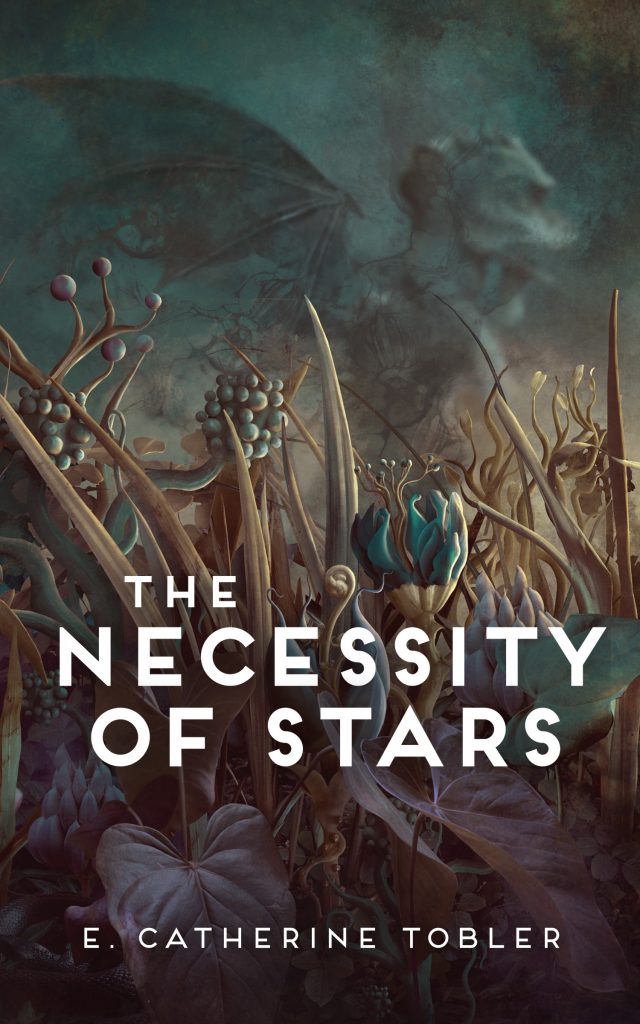
E. Catherine Tobler’s upcoming novella from Neon Hemlock, The Necessity of Stars, is a unique take on a climate changed world and what it takes to live within it.
UN diplomat Bréone Hemmerli lives in the protected enclave of the Irislands estate. There, she cares for her gardens, visits with her companion Delphine, and attempts to broker peace while dealing with memory loss. When she meets an alien named Tura in her garden, she begins to learn new ways of being in the world, and new ways of returning to her former self.
There have been many books that approach a story from the amnesiac’s perspective. Often it’s a plot device used to catch a reader off-guard. The device is sometimes used to artificially withhold information until a crucial moment. But in The Necessity of Stars, Bréone’s memory loss is integrated into the environment. Bréone is isolated from the dying world. She is protected by her status as a UN diplomat, but also vulnerable as an elderly woman. There is a sense, then, that Bréone’s enclave is also vulnerable – that, like her memory, the protected gardens around her could fall to the ravages of climate change which advance outside of Irislands.
But the permeability of Bréone’s environment and the sense of danger that brings is also a source of hope. Bréone is open to this hope because of her condition: were she not vulnerable due to persistent memory loss, she would not have been so open to Tura when he appeared, nor to the solution that Tura presents to both the problem of a climate-ravaged world and the forgetfulness of an old woman. Vulnerability, then, is key in The Necessity of Stars; it is an opening through which all in Bréone’s world must pass – and by implication all in our world as well.
Near the end of the novella, Bréone tells herself:
Memory is a form of fiction.
E. Catherine Tobler, The Necessity of Stars
Memory is a story you tell yourself, a story that keeps the days threaded together in proper order. Experts in memory function say your first memory probably never happened, that it is a fiction you’ve told yourself so many times you’ve simply come to believe it as truth.
This novella offers a story about created worlds: the damaged and dying world created by industrialization and unfettered capitalism, the worlds we create in our own minds (to escape said world or, sometimes, to justify it), and the created world that is possible if we are vulnerable and open to the kinds of changes that move us through discomfort to something new. In her characteristic lush and intricate prose, E. Catherine Tobler highlights the necessity of change and the inherent hopefulness in vulnerability.
